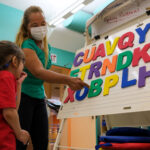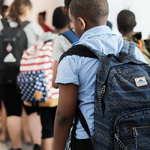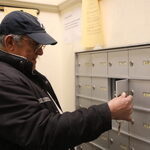Compassion in Action: What Social Workers Do at VOA-GNY
Social workers are a crucial part of our work at VOA-GNY. Their role is both broad and tailored to meet individual client needs.

Social workers are a crucial part of our work at VOA-GNY. Their role is both broad and tailored to meet individual client needs.

March has the dual distinction of being Women’s History Month and Brain Injury Awareness Month, which aims to raise awareness of and advocate for the more than 5.3 million individuals in the U.S. who are living with permanent brain injury-related disabilities—one in 60 Americans.

For individuals struggling with substance use disorders, especially while also experiencing homelessness, the road to recovery is not always straight.

While much of the work we do is government-funded, support from the community (especially regular giving) can help make the biggest impact when it comes to ending homelessness.

Studies show that children with autism whose families live in low-income neighborhoods are less likely to be diagnosed with autism and receive interventions. Adults who never received treatment as children are more likely to have trouble living independently—putting them at risk of homelessness.

Homelessness can affect more than a child’s grades and the impact can last long after they leave the shelter.

Learn about how we care for young men and women who are aging out of the foster care system during this crucial period in their lives.

Each day, 10,000 Americans turn 65 years old. New York City’s senior population is growing larger, living longer, and getting poorer. Several factors are causing older adults to age into poverty and homelessness.

Through VOA-GNY’s domestic violence programs, we can help teen survivors in need by providing adequate resources and safety plans.

AVP of Veterans’ Initiatives Brian Bardell paints a picture of what moral injury is and what our organization is doing to treat it.